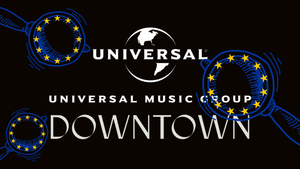The Worldwide Independent Network has urged European Union competition regulators to ensure they consider “the structure of the music industry as a whole” when investigating Universal Music’s bid to buy Downtown Music Holdings.
In an open letter to European Commission EVP Teresa Ribera, WIN CEO Noemí Planas says that the Downtown deal cannot be “analysed merely as a market share acquisition”, and that regulators must consider the control Universal is seeking to exert across the entire digital music market.
The EC announced last month that it is investigating Universal’s bid to buy Downtown, a transaction that would give the major ownership of the FUGA, CD Baby, Songtrust and Curve businesses that provide crucial services to millions of independent artists and labels.
Pan-European indie label trade group IMPALA has already urged the EC to block the deal, and Planas says that independent music businesses across Europe and the world are likewise hoping for that outcome. WIN brings together 37 independent music trade associations across the world.
“We look to you to set the standard globally by conducting a detailed assessment and blocking this acquisition to avoid harm”, she writes, adding, “independent music companies and the artists they work with around the world rely on Europe’s ambition to lead the way and inspire us, so that they can have a future based on the merits of their music and consumer choice, not market power”.
Planas urges the EU regulator to “carefully examine” how Universal taking over Downtown will create “barriers to entry” for independents, “conflicts of interest” as Universal increasingly provides ever more services to its rivals, and issues around the “use and control of data” and Universal’s “bargaining power over streaming services”.
The letter offers more detail about the negative impact likely to occur if Universal further increases its bargaining power in the digital market through its increased control of catalogue owned by independent artists and labels. She points to changes already made by certain streaming services under pressure from Universal that disadvantage indies.
Deezer, Spotify and Amazon have all made changes to the way they pay royalties in response to Universal’s demands for what the major perversely dubs an “artist-centric” model. Although Universal “negotiated these deals behind the backs of the other record labels”, she adds, “streaming services subsequently and unilaterally changed the terms for all their customers based on the Universal deal”.
As a result, she explains, “streaming services stop paying artists who do not reach an arbitrary threshold of annual plays or listeners and reallocate revenues to those that have more popularity or financial backing, an anti-competitive policy that clearly hurts small artists and independent labels”.
As for the data issues, the Downtown deal will give Universal access to data about many of its rivals, and the artists they work with and catalogues they control. That includes data relating to the recordings FUGA and CD Baby distribute, but also - via the Curve royalties platform - “privileged and critical business information about its competitors, including pricing, contractual terms and strategic relationships”.
Universal will be able to use this data to inform future catalogue acquisitions, something Sony has already admitted to doing with data from its own indie distribution businesses.
But it will also inform Universal’s other business ventures - which, Planas notes, not only include recordings and music publishing, but also growing interests in merchandise, management and audio-visual projects. Downtown data will help Universal “develop other lines of business, structure deals to its advantage, and manipulate the market to outbid competitors”.
That, Planas argues, would put “the balance of the music market at risk”, to the detriment not just of “music industry workers, entrepreneurs and businesses around the globe”, but also European consumers. Because “to allow large multinational companies to control the music we consume is to limit cultural diversity, and a market with less choice and diversity amounts to a form of consumer injury”.
The EC has until 22 Jul to complete its initial investigation into the Downtown deal, at which point it could launch a more detailed phase two investigation.

